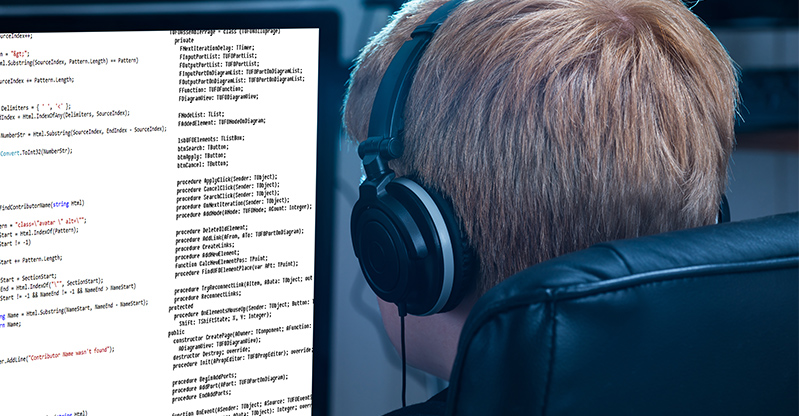In this blog, we’ve been honoring a number of different personalities from the worlds of STEM, Technology, and Science. We feel it is important to put on the table the names and life stories of those who positively influenced our everyday lives through their genius inventions and breathtaking innovations.
That is why, when we decided to discuss the main concepts of rocket science, we brought you the story of Annie Easley, turning this complex subject into something more personal and appealing. Or, when we decided to introduce you to Ida Rhodes, so you could better comprehend the Handbook of Mathematical Functions.
With the same goal in mind, and with the intention of you fully understanding the first appearance of the personal computer, at this opportunity we want you to meet Mary Allen Wilkes. Wilkes worked under Wesley A. Clark, a noted computer designer who was awarded the Eckert-Mauchly Award -among other awards- in the creation of the first-ever personal computer, and today, we would like to share with you a tiny part of her story and legacy.
But, what is a personal computer and why was its creation so important for the development of modern computers and technology? In this short, but quite interesting article, we’ll do our best to explain it to you.

What is a personal computer?
According to Wikipedia and other sources, a personal computer is a multi-purpose computer whose size, capabilities, and cost make it accessible for individual use. Personal computers were originally designed and planned to be operated straight by an end-user (someone like you or me), instead of being used only by a computer scientist or specialist.
Different from large, expensive minicomputers and centralized computers, time-sharing by lots of people at the same time doesn’t happen with personal computers.
Institutional or corporate computer proprietors in the 1960s had to write their own programs to do any useful work with the equipment.
Actually, if “personal computer” sounds too old-fashioned for you, just think about its initials and you’ll see that even today, we keep giving them the same name: PC.

How is Mary Allen Wilkes related to the first personal computer?
Wilkes was born in Chicago in 1937, and she is a former computer programmer and logic designer. Nowadays, she is mainly known for her praiseworthy work on the LINC computer, which today is considered the first-ever personal computer in history. She was a member of the LINC development team, under Wesley A. Clark, and that she wrote the system software, including the interactive operating system LAP6 for the LINC.
She worked at the MIT Lincoln Laboratory, programming different computers for IBM. After doing so, she remained working in the same laboratory to join the team that developed the LINC computer.
The LINC was a 12-bit, 2048-word computer, made with transistors rather than valves. The LINC is considered by some the first minicomputer and a forerunner to the personal computer. Actually, everything we know today about personal computers has its roots in Wilkes’ and Clark’s creation: The LINC.
After a huge success with her team while designing and developing the LINC computer, and even doubling its capacity, Mary Allen Wilkes then started to pursue another one of her dreams: Becoming a lawyer.
Programming and Law: A possible mix
Mary Allen Wilkes left computers behind at the beginning of the 1970s to attend Harvard Law School and become an attorney. Although she will be always remembered as the first person to use a personal computer in the home, she never stopped following her dreams.
The critical thinking abilities, problem-solving skills, and creativity that she strengthened during her years as a computer programmer, definitely helped her do a more holistic and comprehensive job as a lawyer.
Your kids should learn how to code: The skills are forever.
As you can see, even if your kids want to become lawyers, writers, actors, dancers, or business people, coding can help them achieve their dreams with a wider set of skills to use whenever they want.
Understanding how the world works, and how things are built can only strengthen your children’s skills and abilities, regardless of what they decide to do with their lives in the future. Check out the live online coding lessons for kids Tekkie Uni offers, and let yourself be surprised with the variety of options they have for your children.
If your children want to create their own app, there is a course for them. If they love creating YouTube videos about their hobbies and interests, there is also a course for them. If, instead, your kids would like to learn how to animate their drawings, guess what? There is a course for them.
Whatever they pick, their skills will strengthen. We promise.




